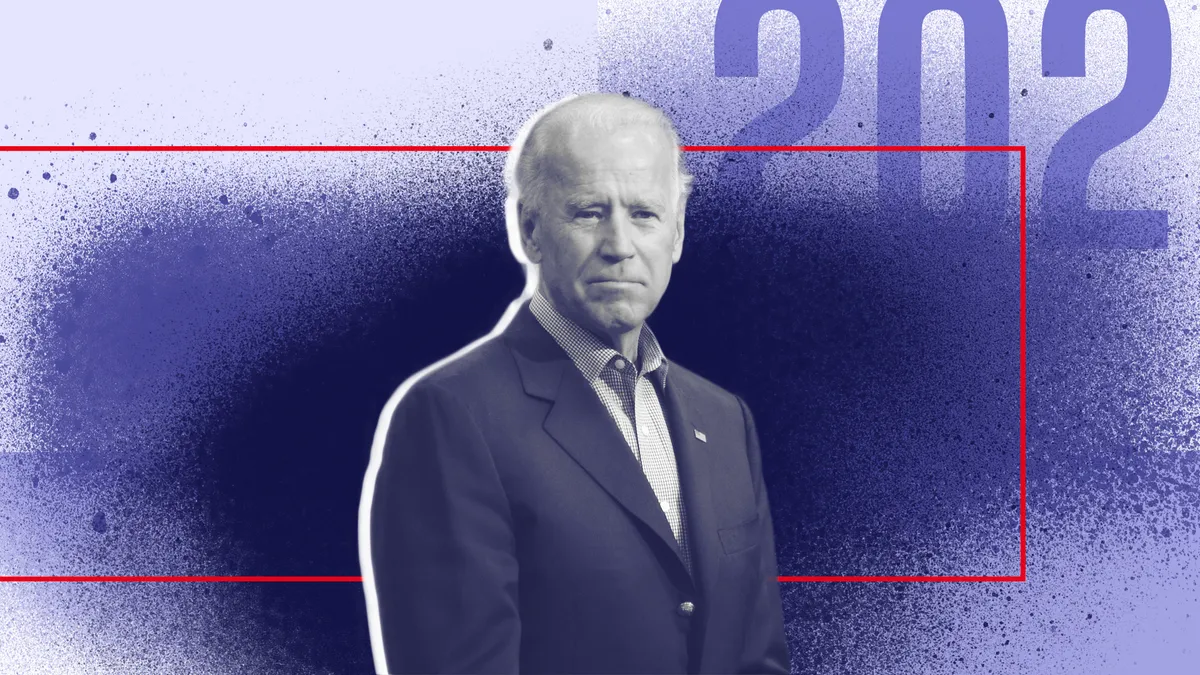While former Vice President Joe Biden and the team he builds won't take office for another two months, the campaign’s plans for COVID-19, healthcare and other policy areas offer clues to how changing tides in Washington may impact the medtech industry.
In approaching the top task at hand — getting the pandemic under control — the Democrat's plan includes proposals with implications for the industry, from how diagnostic testing is covered to access to telemedicine services.
In some ways, the act of swapping out administrations, regardless of who's in power, means device makers can anticipate shifts at key government agencies like the FDA.
"It's important to note any change in administration brings potential changes in prioritization," said Hogan Lovells Partner Randy Prebula, a co-director of the firm's FDA medical devices and technology practice. Examples may include a greater focus on compliance with potential for more inspections and warning letters, more careful review of existing technologies or new initiatives entirely.
Some disease states may also receive closer attention. Biden led an effort to eradicate cancer during the Obama administration. He called out cancer and Alzheimer's during a victory speech last weekend.
Below are three areas in which the incoming administration may affect medtech, as the country fights another resurgence in the pandemic.
Onshoring manufacturing
The Biden campaign's COVID-19 plan looks to make American manufacturing of medical products a staple "in the aftermath of the crisis."
"The U.S. government should immediately work with the private sector to map critical health care supplies; identify their points of origin; examine the supply chain process; and create a strategic plan to build redundancies and domestic capacity," the plan states.
It goes on that the goal is to "ensure we are not vulnerable to supply chain disruptions, whether from another pandemic, or because of political or trade disputes."
Those principles track with key asks in a letter last month from the Healthcare Supply Chain Association to the U.S. International Trade Commission, calling for increasing collaboration between public and private stakeholders, exploring private sector incentives for domestic manufacturing, continuing to provide tariff relief for critical medical products during the pandemic, and strengthening supply chains in advance of emergencies.
Although the forthcoming transition of power "is like no other transition that we’ve had," said Ivan Zapien, a Hogan Lovells partner who formerly held an array of positions in national Democratic politics, Biden doesn't necessarily differ from President Donald Trump in wanting more domestic production of medical goods. "I think you will see a continuity in terms of trade policies from the Trump administration to the Biden administration along the same lines as it affects medical devices," Zapien said.
As for the Strategic National Stockpile, Biden's plan simply says it "must be used to supplement any shortages that exist, especially for essential medical supplies, like oxygen, ventilators, and personal protective equipment."
Trade groups have more detailed comments on what's needed. AdvaMed believes the U.S. government needs to increase procurement funding for the stockpile to ensure sufficient inventory of diagnostics supplies such as reagents, swabs, transport media and pipettes, CEO Scott Whitaker wrote last weekend.
The evolving approach to lab-developed tests
One of the Trump administration's most controversial and potentially disruptive medtech policy decisions during the pandemic involves the regulation of laboratory-developed tests. Whether the incoming Biden administration will seek to reverse the LDT policy remains an open question.
HHS in August announced FDA would no longer require premarket review for LDTs but laboratories could voluntarily seek approval, clearance or emergency use authorization. That policy shift was followed by FDA's subsequent announcement in October that it will no longer review EUA submissions for COVID-19 LDTs to "make the best use" of agency resources and in the interests of public health.
The policy change reversed a long-established FDA approach and applies to all LDTs, not just COVID-19 diagnostics, and has the potential to negatively impact a wide swath of such tests. For instance, the Association for Clinical Oncology in September warned the HHS policy change threatens the safety of cancer care.
Jeffrey Gibbs, director at law firm Hyman, Phelps & McNamara, which represents diagnostics and medtech companies, noted during a Food and Drug Law Institute webinar on Tuesday the "saga" regarding regulation of LDTs has been going on for 28 years and is clearly not over.
"I'm sure that President-elect Biden has many other things that are higher on his mind than that. But, this is a topic that will reemerge," Gibbs said.
Industry groups such as the American Clinical Laboratory Association (ACLA), which represents some of the companies most impacted by the Trump administration's LDT policy changes, are concerned that not all diagnostic test developers will be subject to the same standard of testing validation during the pandemic and beyond.
Tom Sparkman, ACLA's SVP of government affairs and policy, noted his lobbying organization over the past five years has been engaged with Congress, FDA and other stakeholders to come up with a framework that applies "appropriate" oversight for development of tests.
Prior to the HHS policy change in August, Congress had been working on the regulation of LDTs. The Verifying Accurate, Leading-edge IVCT Development (VALID) Act introduced in March in both the House and Senate creates a new test product category — in vitro clinical tests, which includes lab-developed tests — while giving FDA authority to review and approve IVCTs.
"What the VALID Act proposes to do is to redefine this space," Sparkman said, with the new IVCT terminology that includes LDTs. "We have not endorsed VALID, nor have we endorsed its predecessors, but we are actively engaged to seek that appropriate balance."
ACLA sent a letter in October to the House and Senate sponsors of the VALID Act supporting efforts by Congress to come up with a new "comprehensive statutory reform" oversight framework for diagnostic tests. "We do believe the time is right to consider reform," Sparkman said. "The big open question to me is: whoever the new leadership at HHS and FDA is, will that be a priority for them as well?"
Leveraging claims data
Tucked into the many pitches laid out in the Biden campaign's COVID-19 plan is: "Task the Centers for Medicare and Medicaid Services to help establish a diagnosis code for COVID-19 on an emergency basis so that surveillance can be done using claims data."
Its inclusion suggests a desire for better federal tracking of virus trends and shorter and longer-term outcomes among those who contract it.
In medtech, the concept of conducting surveillance using claims data is among those championed by real-world evidence group NEST (the National Evaluation System for health Technology), but isn't necessarily yet commonplace.
Writing in Health Affairs last month on the potential benefits and limitations of healthcare claims data for COVID-19 research, medical experts from Harvard and Stanford concluded that the technique is "frequently better suited to the study of the health care system and specific types of longitudinal questions than for clinical applications." They added that "even this requires deep knowledge of the underlying processes that generated the data, regulatory changes, provider behavior, and more to inform policy and decision making."
Whether or not CMS under Biden establishes such a code to start leveraging claims data, the pandemic has already catalyzed further thinking at FDA about real-world evidence for medical products. The agency in June announced a so-called Diagnostics Evidence Accelerator intended to assess COVID-19 tests using other sources of real-world data.

















